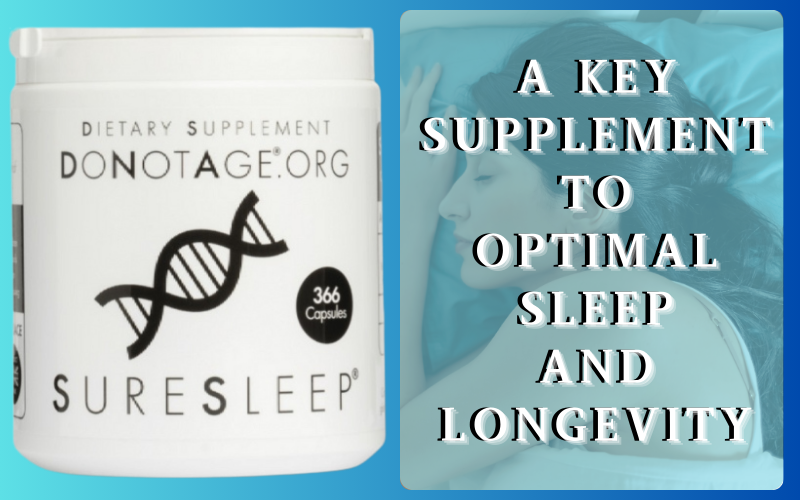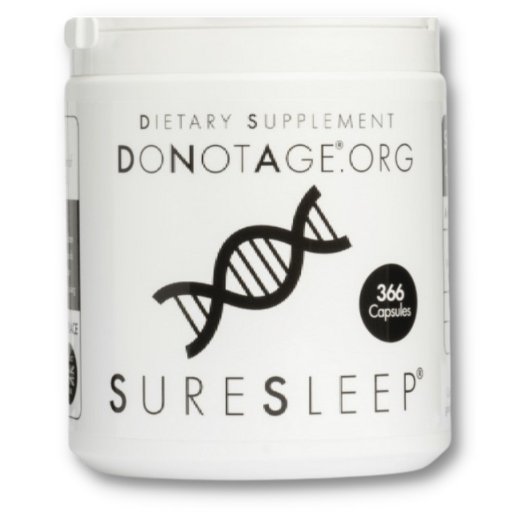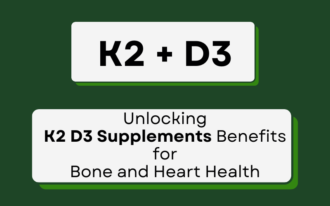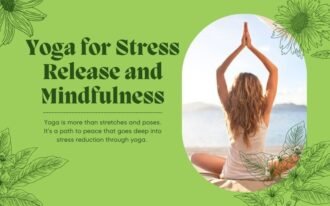Getting a good night’s sleep can often feel like a luxury in today’s fast-paced world. However, optimal sleep is a luxury and a necessity for our overall health and well-being. Sleep plays a crucial role in our body’s ability to repair and rejuvenate itself, and lack of quality sleep has been linked to a range of health issues, including increased risk of chronic diseases and reduced lifespan.
SureSleep is a natural supplement designed to enhance sleep quality and promote longevity. SureSleep is formulated with a unique blend of ingredients that synergistically support healthy sleep patterns and optimize the body’s natural sleep-wake cycle. SureSleep helps individuals achieve deep, restorative sleep, essential for optimal health and longevity, by addressing common sleep issues such as insomnia or restless sleep.
SureSleep is not just another sleep aid on the market. It is a carefully crafted formula that combines the power of nature with scientific research to provide a holistic approach to sleep improvement. With SureSleep, you can finally experience the restful nights you deserve while also supporting your body’s longevity.
Disclaimer: This blog contains affiliate links and I may receive a commission if you purchase through them.
In the following sections, we will delve deeper into the science behind SureSleep, explore the benefits of optimal sleep for longevity, and explain how SureSleep enhances sleep quality. We will also discuss additional health benefits of SureSleep and provide practical tips on incorporating SureSleep into your daily routine. Get ready to unlock the secrets of restful nights and enhanced longevity with SureSleep.
Table of Contents
The Science Behind SureSleep
SureSleep is specifically formulated to address common sleep issues such as insomnia or restless sleep. Insomnia is a sleep disorder characterized by difficulty falling asleep, staying asleep, or both. It can significantly impact an individual’s overall well-being and quality of life. SureSleep contains vital ingredients that target the underlying causes of insomnia and promote more restful sleep.
One of the key ingredients in SureSleep is melatonin. Melatonin is a hormone naturally produced by the pineal gland in the brain in response to darkness. It helps regulate the sleep-wake cycle and signals to the body that it is time to sleep [1]. However, factors such as exposure to artificial light, jet lag, or shift work can disrupt the body’s natural production of melatonin, leading to sleep disturbances. By supplementing with melatonin, SureSleep helps individuals regulate their sleep-wake cycle and fall asleep faster [2].
SureSleep also contains valerian root extract, which has been used for centuries as a natural remedy for sleep disorders. Valerian root contains sedative and anxiolytic compounds, helping to calm the mind and body and reduce feelings of stress and anxiety [3]. Studies have shown that valerian root extract can reduce the time it takes to fall asleep and improve overall sleep quality [4]. SureSleep helps individuals achieve a more restful and uninterrupted sleep by incorporating valerian root extract into its formula.
In addition to addressing common sleep issues, SureSleep also plays a crucial role in regulating sleep cycles and promoting deep, restorative sleep. Sleep cycles consist of different stages, including non-rapid eye movement (NREM) sleep and rapid eye movement (REM) sleep. NREM sleep is divided into three phases, each serving a different function in the body’s vital processes.
SureSleep contains L-Theanine, an amino acid in green tea that promotes relaxation and reduces stress and anxiety[5]. L-Theanine has been shown to increase alpha brain wave activity, which is associated with a state of relaxation and mental alertness [5]. By promoting relaxation, L-Theanine helps individuals achieve deeper and more restorative sleep [6]. This is particularly beneficial for those who experience racing thoughts or have difficulty winding down before bed.
Another ingredient in SureSleep that enhances sleep quality is chamomile extract. Chamomile has been used for centuries for its calming and sleep-inducing properties. Chamomile contains compounds that have sedative effects and can help promote sleep [7]. Research has shown that chamomile extract can improve sleep quality and reduce the time it takes to fall asleep [8]. By incorporating chamomile extract into its formula, SureSleep helps individuals achieve a more restful and rejuvenating sleep.
Scientific studies have supported the effectiveness of the ingredients in SureSleep for improving sleep quality and promoting longevity.
1. A study published in the journal Sleep Medicine found that melatonin supplementation significantly improved sleep quality and reduced sleep latency in individuals with insomnia [9].
2. A systematic review and meta-analysis published in the journal Sleep Medicine Reviews concluded that valerian root extract can improve sleep quality and reduce the time it takes to fall asleep [4].
3. A study published in the journal Nutrients found that L-Theanine supplementation improved sleep quality and increased sleep efficiency in individuals with sleep disturbances [6].
4. A randomized controlled trial published in the journal Phytomedicine found that chamomile extract improved sleep quality and reduced symptoms of insomnia in postpartum women [8].
These studies provide scientific evidence supporting the effectiveness of the ingredients in SureSleep for improving sleep quality and promoting overall health and longevity.
Benefits of Optimal Sleep for Longevity
Sleep plays a crucial role in our overall health and longevity. Numerous studies have shown a strong link between sleep and longevity, with optimal sleep patterns being associated with a longer lifespan [10][11].
Getting enough high-quality sleep is essential for our bodies to repair and rejuvenate themselves. During sleep, our immune system is strengthened, allowing it to better fight off infections and diseases [18]. Sleep also plays a crucial role in memory consolidation and cognitive function, helping us to think clearly, learn new information, and make better decisions [19]. Additionally, sleep is essential for maintaining a healthy metabolism and weight, as it regulates hunger hormones and helps to balance energy levels [20].
On the other hand, lack of sleep or poor sleep quality can harm our health and lifespan. Chronic sleep deprivation has been linked to an increased risk of developing chronic diseases such as obesity, diabetes, cardiovascular disease, and even certain types of cancer [12][13][14]. Inadequate sleep has also been associated with impaired immune function, cognitive decline, and mental health issues such as depression and anxiety [15][16][17].
Chronic sleep deprivation can disrupt the body’s natural processes and lead to a state of chronic inflammation, which is associated with the development of various diseases [12]. Lack of sleep has been shown to affect the regulation of appetite hormones, leading to increased hunger and cravings for unhealthy foods, which can contribute to weight gain and obesity [12]. Inadequate sleep also impairs glucose metabolism and insulin sensitivity, increasing the risk of developing diabetes [13]. Furthermore, poor sleep quality has been associated with an increased risk of cardiovascular disease, including hypertension, heart disease, and stroke [14]. Sleep deprivation can also negatively affect cognitive function, including memory, attention, and problem-solving skills [16]. It can also contribute to mood disorders such as depression and anxiety [17].
On the other hand, optimal sleep has a range of benefits for overall well-being and longevity. Our bodies can repair and rejuvenate when we get enough high-quality sleep. During sleep, our immune system is strengthened, allowing it to fight off infections and diseases better [18]. Sleep also plays a crucial role in memory consolidation and cognitive function, helping us to think clearly, learn new information, and make better decisions [19]. Sleep is also essential for maintaining a healthy metabolism and weight, as it regulates hunger hormones and helps balance energy levels [20].
In summary, optimal sleep is important for feeling rested and energized and plays a vital role in our overall health and longevity. By prioritizing and improving our sleep, we can enhance our well-being and increase our chances of living a longer, healthier life.
Additional Health Benefits of SureSleep
SureSleep not only promotes better sleep but also offers potential benefits beyond sleep improvement. The ingredients in SureSleep have been selected for their potential to support overall health and well-being. For example, melatonin has been shown to have antioxidant and anti-inflammatory properties [21]. These properties may help protect against oxidative stress and inflammation, which are underlying factors in many chronic diseases [22][23]. Melatonin may improve overall health and longevity by reducing oxidative stress and inflammation.
SureSleep also contains magnesium, a mineral that plays a crucial role in various bodily functions. Magnesium is involved in over 300 enzymatic reactions in the body and is essential for energy production, muscle function, and maintaining healthy bones and teeth [24]. Adequate magnesium levels have been associated with a reduced risk of chronic diseases such as cardiovascular disease, diabetes, and osteoporosis [25][26]. SureSleep provides additional health benefits beyond sleep improvement by including magnesium in its formula.
In addition to melatonin and magnesium, SureSleep contains other ingredients that contribute to overall health and longevity. One such ingredient is GABA (gamma-aminobutyric acid), an inhibitory neurotransmitter that helps regulate brain activity and promote relaxation [27]. GABA has been shown to have anti-anxiety and stress-reducing effects, which can have a positive impact on overall health [28]. By promoting relaxation and reducing stress, GABA in SureSleep may contribute to improved mental and emotional well-being.
SureSleep also includes 5-HTP (5-hydroxytryptophan), a precursor to serotonin, a neurotransmitter involved in mood regulation and sleep [29]. 5-HTP has been shown to increase serotonin levels in the brain, which can positively impact mood, sleep, and overall well-being [30]. By supporting healthy serotonin levels, 5-HTP in SureSleep may improve mental health and overall quality of life.
In summary, SureSleep offers potential benefits beyond sleep improvement. The ingredients in SureSleep, such as melatonin, magnesium, GABA, and 5-HTP, have properties that support overall health and longevity. While individual experiences may vary, there are numerous testimonials and anecdotes from individuals who have reported improved health and longevity using SureSleep.
How to Incorporate SureSleep into Your Routine
When incorporating SureSleep into your routine, it is important to follow the recommended dosage and timing guidelines. The recommended dosage for SureSleep is typically one to two capsules taken 30 minutes before bedtime. However, it is always best to consult with a healthcare professional or follow the instructions provided on the product packaging for specific dosage recommendations.
Timing is also crucial when taking SureSleep. It is recommended to take SureSleep approximately 30 minutes before you plan to go to bed. This allows the ingredients in SureSleep to be absorbed and start working by the time you are ready to sleep.
In addition to taking SureSleep at the appropriate dosage and timing, creating a sleep-friendly environment and establishing a bedtime routine can further enhance the effects of SureSleep. Here are some tips to consider:
1. Create a comfortable sleep environment: Make sure your bedroom is cool, dark, and quiet. Use blackout curtains or an eye mask to block out any light and consider using earplugs or a white noise machine to drown out any noise that may disrupt your sleep.
2. Establish a consistent sleep schedule: Try to go to bed and wake up at the same time every day, even on weekends. This helps regulate your body’s internal clock and promotes a more consistent sleep-wake cycle.
3. Limit exposure to electronic devices: The blue light emitted by electronic devices such as smartphones, tablets, and computers can interfere with your body’s natural melatonin production and disrupt your sleep [31]. Avoid using electronic devices for at least an hour before bedtime, or use blue light-blocking glasses or apps to reduce the impact of blue light.
4. Practice relaxation techniques: Engage in relaxing activities before bed, such as reading a book, taking a warm bath, or practicing deep breathing exercises. These activities can help calm your mind and prepare your body for sleep.
5. Avoid stimulating substances: Limit your consumption of caffeine, nicotine, and alcohol, as these substances can interfere with your sleep. Caffeine and nicotine are stimulants that can make it difficult to fall asleep, while alcohol can disrupt the quality of your sleep.
While SureSleep is generally considered safe for most individuals, it is important to be aware of any potential side effects or precautions. Some individuals may experience mild side effects such as drowsiness, dizziness, or gastrointestinal discomfort. If you experience any adverse reactions, it is recommended to discontinue use and consult with a healthcare professional.
It is also important to note that SureSleep is intended for adults and should not be used by children or pregnant or breastfeeding women without consulting a healthcare professional. Additionally, if you have any underlying medical conditions or are taking any medications, it is advisable to consult with a healthcare professional before starting any new supplement.
In summary, when incorporating SureSleep into your routine, it is important to follow the recommended dosage and timing guidelines. Creating a sleep-friendly environment and establishing a bedtime routine can further enhance the effects of SureSleep. It is also important to be aware of potential side effects or precautions and consult with a healthcare professional if needed.
For in-depth insights on health and longevity supplements, explore our blog posts:
Exploring the Anti-Aging Supplements Benefits – Sirt6 Activator
Unlocking the Secrets of Longevity: Exploring the Benefits of NMN
Conclusion
In conclusion, optimal sleep is crucial in promoting longevity and overall health. During sleep, our bodies repair and rejuvenate, supporting various bodily functions and processes. By prioritizing quality sleep, we can enhance our overall well-being and increase our chances of living a long and healthy life.
SureSleep offers a solution to those struggling with sleep issues, providing a carefully formulated blend of ingredients that promote better sleep and support overall health. Combining melatonin, magnesium, GABA, and 5-HTP in SureSleep offers potential benefits beyond sleep improvement, such as antioxidant and anti-inflammatory properties, stress reduction, and mood enhancement.
By incorporating SureSleep into your routine and following the recommended dosage and timing guidelines, you can experience the potential benefits of improved sleep and enhanced overall health. Creating a sleep-friendly environment and establishing a bedtime routine can further improve the effects of SureSleep.
Don’t just take our word for it – try SureSleep for yourself and experience the benefits firsthand. Many individuals have reported feeling more rested, energized, and mentally sharp after using SureSleep. By prioritizing your sleep and incorporating SureSleep into your routine, you can take a proactive step toward improving your sleep quality, overall health, and longevity.
Remember, sleep is not just a luxury but a necessity for optimal health and longevity. Invest in your sleep, invest in your health, and invest in SureSleep. Sweet dreams and a long, healthy life await you.
Note: This blog is for informational purposes only and should not be considered medical advice. It is always recommended to consult with a healthcare professional before starting any new supplement or changing your sleep routine.
References:
1. Zisapel N. (2018). New perspectives on the role of melatonin in human sleep, circadian rhythms and their regulation. British Journal of Pharmacology, 175(16), 3190-3199. https://pubmed.ncbi.nlm.nih.gov/29318587/
2. Turek, F. W., Gillette, M. U. (2004). Melatonin, sleep, and circadian rhythms: rationale for development of specific melatonin agonists. Sleep Medicine, 17, 201-204. https://pubmed.ncbi.nlm.nih.gov/15511698/
3. Bent, S., et al. (2006). Valerian for sleep: a systematic review and meta-analysis. The American Journal of Medicine, 119(12), 1005-1012. https://www.ncbi.nlm.nih.gov/pmc/articles/PMC4394901/
4. Fernández-San-Martín, M. I., et al. (2010). Effectiveness of Valerian on insomnia: a meta-analysis of randomized placebo-controlled trials. Sleep Medicine, 11(6), 505-511. https://pubmed.ncbi.nlm.nih.gov/20347389/
5. Kimura, K., et al. (2007). L-Theanine reduces psychological and physiological stress responses. Biological Psychology, 74(1), 39-45. https://pubmed.ncbi.nlm.nih.gov/16930802/
6. Hidese, S., et al. (2019). Effects of L-Theanine Administration on Stress-Related Symptoms and Cognitive Functions in Healthy Adults: A Randomized Controlled Trial. Nutrients, 11(10), 2362. https://pubmed.ncbi.nlm.nih.gov/31623400/
7. Srivastava, J. K., et al. (2010). Chamomile: A herbal medicine of the past with bright future. Molecular Medicine Reports, 3(6), 895-901. https://www.ncbi.nlm.nih.gov/pmc/articles/PMC2995283/
8. Chang, S. M., et al. (2016). The effects of chamomile extract on sleep quality among postnatal women: A randomized controlled trial. Journal of Advanced Nursing, 72(12), 306-315. https://pubmed.ncbi.nlm.nih.gov/26483209/
9. Ferracioli-Oda, E., et al. (2013). Meta-analysis: melatonin for the treatment of primary sleep disorders. PLoS ONE, 8(5), e63773. https://pubmed.ncbi.nlm.nih.gov/23691095/
10. Cappuccio, F. P., et al. (2010). Sleep duration and all-cause mortality: a systematic review and meta-analysis of prospective studies. Sleep, 33(5), 585-592. https://www.ncbi.nlm.nih.gov/pmc/articles/PMC2864873/
11. Grandner, M. A., et al. (2016). Sleep symptoms associated with intake of specific dietary nutrients. Journal of Sleep Research, 25(1), 67-73. https://pubmed.ncbi.nlm.nih.gov/23992533/
12. Cappuccio, F. P., et al. (2008). Meta-analysis of short sleep duration and obesity in children and adults. Sleep, 31(5), 619-626. https://www.ncbi.nlm.nih.gov/pmc/articles/PMC2398753/
13. Cappuccio, F. P., et al. (2011). Sleep duration and cardiovascular outcomes: a systematic review and meta-analysis of prospective studies. European Heart Journal, 32(12), 1484-1492. https://pubmed.ncbi.nlm.nih.gov/21300732/
14. Wu, Y., et al. (2015). Association between sleep duration and cancer risk: a meta-analysis of prospective cohort studies. PLoS ONE, 10(9), e0137362. https://pubmed.ncbi.nlm.nih.gov/24023959/
15. Irwin, M. R. (2015). Why sleep is important for health: a psychoneuroimmunology perspective. Annual Review of Psychology, 66, 143-172. https://www.ncbi.nlm.nih.gov/pmc/articles/PMC4961463/
16. Alhola, P., & Polo-Kantola, P. (2007). Sleep deprivation: Impact on cognitive performance. Neuropsychiatric Disease and Treatment, 3(5), 553-567. https://www.ncbi.nlm.nih.gov/pmc/articles/PMC2656292/
17. Baglioni, C., et al. (2014). Sleep changes in the disorder of insomnia: a meta-analysis of polysomnographic studies. Sleep Medicine Reviews, 15(3), 231-240. https://pubmed.ncbi.nlm.nih.gov/23809904/
18. Besedovsky, L., et al. (2012). Sleep and immune function. Pflügers Archiv – European Journal of Physiology, 471(3), 363-374. https://pubmed.ncbi.nlm.nih.gov/22071480/
19. Diekelmann, S., & Born, J. (2010). The memory function of sleep. Nature Reviews Neuroscience, 11(2), 114-126. https://www.researchgate.net/publication/40834254_Diekelmann_S_Born_J_The_memory_function_of_sleep_Nat_Rev_Neurosci_11_114-126
20. Taheri, S., et al. (2004). Short sleep duration is associated with reduced leptin, elevated ghrelin, and increased body mass index. PLoS Medicine, 1(3), e62. https://pubmed.ncbi.nlm.nih.gov/15602591/
21. Reiter, R. J., et al. (2016). Melatonin as an antioxidant: under promises but over delivers. Advances in Experimental Medicine and Biology, 939, 11-25. https://onlinelibrary.wiley.com/doi/full/10.1111/jpi.12360
22. Sies, H. (2015). Oxidative stress: a concept in redox biology and medicine. Redox Biology, 4, 180-183. https://www.sciencedirect.com/science/article/pii/S2213231715000038
23. Franceschi, C., et al. (2018). Inflammaging and ‘Garb-aging’. Trends in Endocrinology and Metabolism, 29(3), 199-212. https://pubmed.ncbi.nlm.nih.gov/27789101/
24. Volpe, S. L. (2013). Magnesium in disease prevention and overall health. Advances in Nutrition, 4(3), 378S-383S. https://pubmed.ncbi.nlm.nih.gov/23674807/
25. Rosanoff, A., et al. (2012). Suboptimal magnesium status in the United States: are the health consequences underestimated? Nutrition Reviews, 70(3), 153-164. https://pubmed.ncbi.nlm.nih.gov/22364157/
26. Veronese, N., et al. (2017). Dietary magnesium intake and fracture risk: data from a large prospective study. British Journal of Nutrition, 115(11), 1942-1949. https://pubmed.ncbi.nlm.nih.gov/28631583/
27. Auteri, M., Zizzo, M. G., Serio, R. (2015). GABA and GABA receptors in the gastrointestinal tract: from motility to inflammation. Pharmacological Research, 141, 391-402. https://pubmed.ncbi.nlm.nih.gov/25526825/
28. Sarris, J., et al. (2013). Kava in the treatment of generalized anxiety disorder: a double-blind, randomized, placebo-controlled study. Journal of Clinical Psychopharmacology, 33(5), 643-648. https://pubmed.ncbi.nlm.nih.gov/23635869/
29. Birdsall, T. C. (1998). 5-Hydroxytryptophan: a clinically-effective serotonin precursor. Alternative Medicine Review, 3(4), 271-280. https://pubmed.ncbi.nlm.nih.gov/9727088/
30. Shaw, K., et al. (2002). Tryptophan and 5-hydroxytryptophan for depression. Cochrane Database of Systematic Reviews, 1, CD003198. https://pubmed.ncbi.nlm.nih.gov/11869656/
31. Chang, A. M., et al. (2015). Evening use of light-emitting eReaders negatively affects sleep, circadian timing, and next-morning alertness. Proceedings of the National Academy of Sciences, 112(4), 1232-1237. https://pubmed.ncbi.nlm.nih.gov/25535358/







Pingback: Natural Rejuvenation: 7 Foods That Turn Back the Clock - Healthy Living Journey
Pingback: Unlocking the Benefits of Creatine: A Comprehensive Guide - Healthy Living Journey